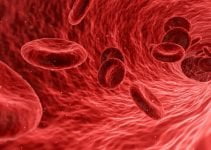
Photo: Pixabay
Making the decision to go through with an abortion it is often a stressful one.
There are many reasons why that decision is made whether it’s due to the health of the mother, learning about the health of the baby, and also that it’s just not the right time to bring a child into the world.
Whatever the situation is, it’s not one for others to judge, that is your decision and whatever you choose to do, it’s right for you.
Because it’s a stressful situation, there could be an effect on your upcoming menstrual cycle.
As explored in previous articles, stress can delay your period because your body is trying to regulate everything else (and it’s been said that delaying ovulation helps to prevent a pregnancy during a stressful time based on history).
Some women see their periods return quickly, within 4-8 weeks, while others may not see it as soon.
Let’s take a look at the basics of an abortion, different types, and then we can discuss how it can affect your next cycle (or two).
Abortion – General Information
An abortion is when pregnancy is ended at an early stage through an outside intervention. While there is a term, spontaneous abortion, it’s sort of a misnomer. It’s essential to note that this is a miscarriage.
This was not a pregnancy where the parents decided to terminate it, it’s when the body did it naturally [1].
The body, once a woman is pregnant, starts creating pregnancy hormones and preparing all the organs for sustaining a new life.
This means that during the time before and even after the abortion for a period of time, the woman can still experience some pregnancy symptoms such as morning sickness and sensitivity to smells.
The body must go back to normal and let those hormones regulate in order for you to start feeling yourself again and so that you start having a cycle again.
When you make the decision to get an abortion you’ll want to go to a trained medical practitioner. Going to a place that isn’t can risk your health and your future fertility.
There are two types of abortion, a medical abortion, and a surgical abortion.
No matter which you choose an early abortion will not impair your fertility or result in complications later in pregnancies.
Both medical and surgical method can be used to induce abortion throughout the pregnancy. The choice of method used depends on factors such as pre-existing medical conditions, preference of women and availability of surgeon.
Medical Abortion
The medical abortion is as it states, it’s done with medicine and one of the most common medications used for this is mifepristone, a progesterone receptor modulator. Since progesterone is required to maintain pregnant uterus in quiescent state, mifepristone will bring about uterine contractions and result in expulsion of fetus.
This is followed by prostaglandin analogue misoprostol, which can now be administered in lower doses, and brings about strong contractions to expel products of conception.
This is something you must get from a doctor and is not an over-the-counter medication. The name may change depending on where you are located however they all do the same thing.
Surgical Abortion
As the name states, this is an abortion done surgically where the doctor will do either a manual vacuum aspiration (MVA) or a dilation and evacuation (D&E).
The former is generally done within the first 12 weeks and the second can be done after the first month [3].
What About your Menstrual Cycle after an Abortion
When you terminate a pregnancy during the first trimester, your period should return in four to eight weeks [4].
Generally, the earlier in the pregnancy you have the abortion, the sooner your cycle will return.
However, that does also depend on what type of birth control you are using (as some can delay or lighten your period, even stop it completely.
No matter what type of method you are using, if you don’t see your period return within the eight weeks, it’s advised to contact your doctor to check for pregnancy or any underlying conditions.
Right after the abortion, your body is going to prioritize expelling all the remnants from the lost pregnancy.
This includes fetal tissue in addition to other debris from your uterus, and it’s characterized by heavy bleeding.
Essentially, this is your first period because it is the beginning of your cycle, getting your body ready to ovulate once again.
The first period after an abortion might not be what you usually anticipate. It could be lighter than your normal one and might not last for the length of time that is normal for you.
That next period could even be heavier than you normally would expect as well. However, if your period is exceptionally heavy and long (filling more than one pad every two hours), you’ll want to contact your doctor.
What Could Change?
When it does come to that next period, as stated above, it might not be what you would normally expect. It could be different in multiple aspects than what your periods were like before your abortion.
One change could be the flow. If you had a surgical abortion, it could result in a lighter period than normal, and with a medical abortion, it could be heavier than normal [5].
You might also find that you have more PMS and other symptoms such as back pain and cramping for the first few cycles. This is normal and should eventually even out to what you experienced before [6].
One reason that the period after a medical abortion is heavier is that the body is still expelling all pregnancy-related tissues [7].
A surgical abortion removes the products of conception and endometrial lining, which results in lighter periods.
Pregnancy Test After Abortion
After an abortion, many want to see if it was successful and taking a pregnancy test is a sure way to determine that. Right?
Well, not necessarily depending on when you take it. A pregnancy test measures the levels of human chorionic gonadotrophin (hCG) in the urine which is the pregnancy hormone as we’ll call it.
While the hormone does decrease very quickly after an abortion, there is still some in the body for up to four weeks after having an abortion [8].
After this point, it’s safe to take a test and determine that you are in fact no longer pregnant. Before that, you may get a false positive because your body hasn’t fully cleared the hormones from your system.
A blood test is a bit different because they can see the actual levels of the hormone. A test can be taken just before the abortion and then about five days post-abortion. If the levels have decreased, then the abortion is successful [9].
Getting Pregnant After Abortion
In that timeframe between the abortion and your next period, you may ovulate. However, this time can vary for different women and depends on how far the pregnancy was when the abortion happened.
Generally, this happens before the second cycle, the first cycle is when the body is still clearing out the pregnancy hormones and such and getting back to being regular again [10].
Because you will not know if you are ovulating yet, it’s recommended that you take precautions to prevent another pregnancy. Either you or your partner could investigate different methods of birth control.
In addition to not wanting to go through another abortion, your body will need time to heal from the loss of a pregnancy so another one is not recommended until at least a few months when it is Fully recovered.
This is very true for those who have had a surgical abortion where the cervix needs to heal from an actual surgery.
Final Thoughts
Again, having an abortion is an extremely personal decision and one that will affect you not only physically but also mentally as well.
Take care after your procedure to care for yourself, whatever that entails. It could be seeing a therapist, taking some yoga classes and meditation (once cleared by your doctor), getting a massage or a spa day, etc. It’s up to you.
Each person will handle it differently but treat your body with respect afterward and when you are ready to start your family, you will still be able to.
Do you have a question about your menstrual cycle, pregnancy, abortion or any other related topic? Check out our Frequently Asked Questions page.
References
- Visit https://www.webmd.com/women/abortion-procedures#1
- See https://www.nps.org.au/australian-prescriber/articles/mifepristone
- See above #1
- Planned Parenthood. What can I expect After Having an In-Clinic Abortion? [link]
- Aliya Khan via First Cry Parenting. Period After Abortion – Symptoms, Changes and Self Care Tips. [link]
- See above #5
- New Kids-Center. What’s Period After Abortion Like When to Worry? [link]
- Women Help Women. Was My Abortion Successful? [link]
- see above #8
- see above #7




I had a medical abortion 2 weeks ago, and my previous cycle was the 28th of june. How shall i know when i will be fertile again? Because i had sex and am afraid to get pregnant again
Hi Sisi, you can calculate your ovulation dates here. Regards
Hi.. I had termination of pregnancy at 14th week -2nd trimester. I had bleeding for 12 days.. later on after the gap of 20days, menses have started but not stopped even after 20 days. Is this normal??? The bleeding was heavy initial days and then very low. Now it is again heavy. Can you guide??
Hey i had a abortion with pills on 11th August and still bleeding… how long bleeding will last… and is that a problem
Hi Jazz, the abortion bleeding usually last for 1 to 3 weeks. Regards
Hi.I had an abortion July 16 and it’s August 19 my first period is out thought it’s gonna last up to 8 weeks before my next circle. Is this normal?
Hi i got my last period on July 6 till i didn’t got my period. I took pregnancy test. it show negative result. what should do. I met my husband on jul 16. If i take mefpristine and misoproatol, will it work completely.
hi it’s almost two months now when I had an abortion which was accompanied by five days of heavy bleeding after taking the abortion medication and my periods have not yet started. I did a pregnancy test two weeks ago and it was negative. what is happening to my body please help
Hi, you visit a doctor because he can give you more than an answer. Regards
Hey i had an abortion on july 11 and stop bleeding july 19th ..when is my next period suppose to come ? Bare in mind today is Aug 16th and it have still to arrive .
Hi Cloe, you can calculate your next period dates here. Regards
Hi!!i had an abortion on 16th july and i stopped bleeding on 25th july ..is there any problem with me?and when am i supposed to start my next periods please help
Hi Charzy, yes you should start your periods according to your cycle. Regards
Please i had surgical abortion that D & C after the abortion my first period came on 21st june 2016 and it last for 4 days and in july it came on 8th july 2016 and it last for 4 days i had sex on 29th and 30th july 2016, is it possible that i can get pregnant
Hi Salo, If you had sex during your fertile days (ovulation days) then you might get pregnant. You should take a pregnancy test after the symptoms begin. Regards
I had an abortion on june 25 2016, started the pill on july 5 and had sex on july 9, I didnt miss a pill but still didn’t get my period, it is possible that am pregnant again? Because I was on the pill only for 4 days when I had sex and on the 14 day after the abortion? Please help!
Hi Honey, if you didn’t get your period after that, you might be pregnant. Moreover, take a pregnancy test to confirm that. Regards